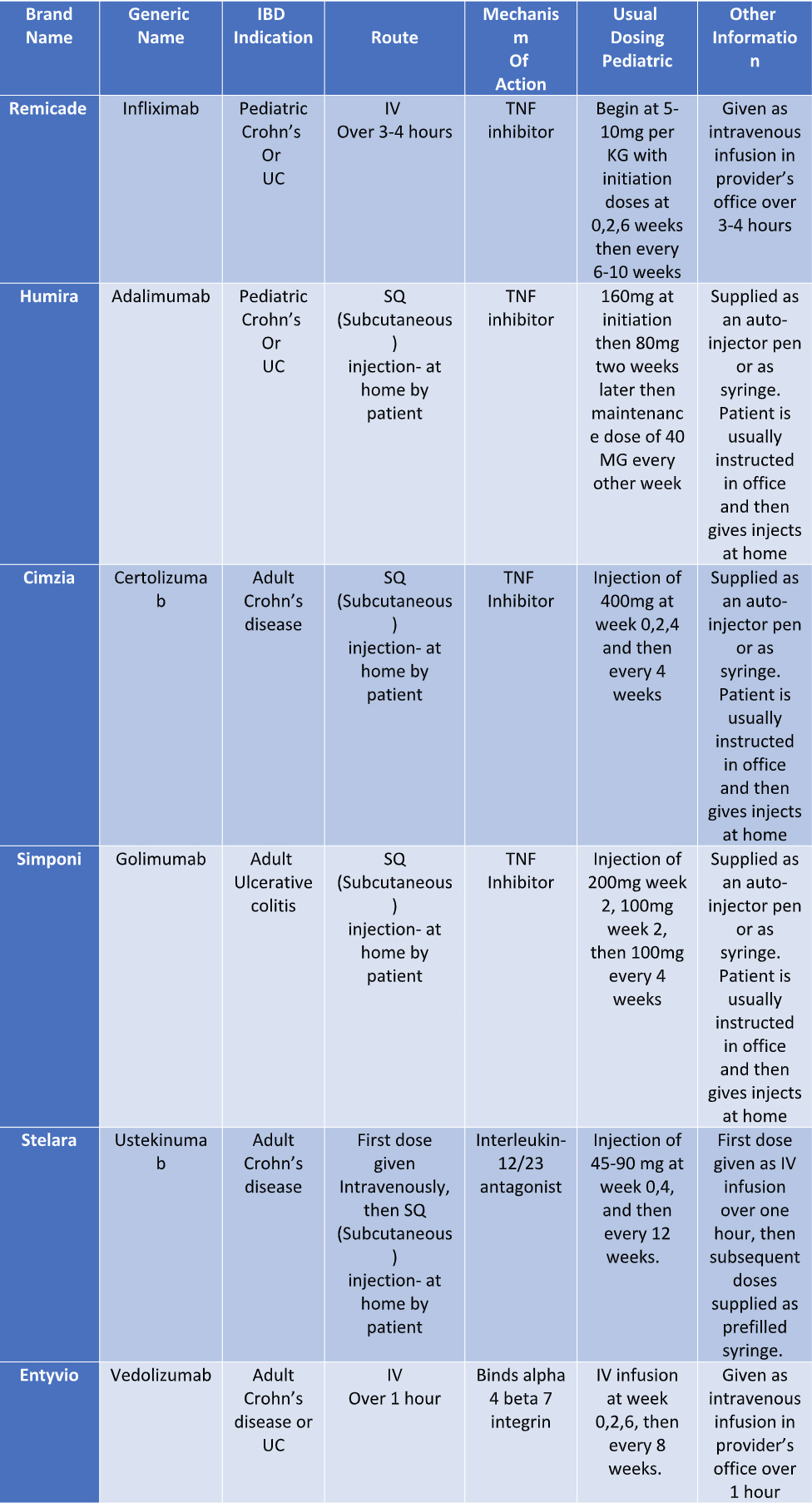Inflammatory Bowel Disease (IBD) is a chronic (lasts a long time) disease where the intestines become inflamed and damaged. There are two types of IBD: Crohn’s disease and Ulcerative colitis. Ulcerative colitis is limited to the colon or large intestine. Crohn’s disease can involve any part of the gastrointestinal tract from the mouth to the anus.
Causes
The cause of IBD is unknown. IBD could be caused by the body’s immune system when it produces an inflammatory reaction in the intestinal tract. It could be caused by an infectious agent like a bacteria or virus, an antigen like protein from cow milk, or even the body’s own tissue causing an autoimmune response. Whatever the cause, the intestinal wall is damaged leading to bloody diarrhea and abdominal pain.
IBD affects both males and females. Risk factors include:
- Age – Usually begins before the age of 30, but IBD can develop in people in their 50s or 60s.
- Ethnicity – can develop in any race.
- Family history – risk is higher if there is a close relative with the disease.
- Medication – a medication sometimes used to treat scarring cystic acne.
- Some pain relievers – medications that cause gastrointestinal ulceration or make existing IBD worse (ibuprofen, naproxen, and aspirin).
- Where you live – environmental factors like living in an urban or industrial, and high fat or refined diet may all play a role in IBD.
Symptoms/Diagnosis
Symptoms of IBD include:
- Diarrhea or constipation
- Abdominal pains
- Loss of appetite and weight loss
- Delayed growth and maturation
- Vomiting
- Skin rash
- Joint pain
- Fever
- Eye problems
- Bleeding in the digestive tract
Diagnostic Tests
Based on your medical history, various diagnostic tests are available. A COLONOSCOPY, or UPPER ENDOSCOPY, are used to diagnose bleeding or problems in the intestines. A CAPSULE ENDOSCOPY may be done to diagnose bleeding or problems in the area of the small intestines that a colonoscopy is unable to reach.
An imaging scan, to help locate any bleeding or blockages that may exist in your digestive tract, can help with a diagnosis (BLEED SCAN, UPPER GI SERIES, CT SCAN). In addition, there are several tests that can be done using a blood sample from the patient, such as the IBD Serology 7 Test. The doctor may also get a stool sample to test the presence of bacteria, viruses, or parasites.
Treatment
The goal of treatment for IBD is to reduce inflammation causing damage to the intestines. While there is no cure for IBD, several treatments have proven to be effective in controlling symptoms.
Admitting the child to the hospital may be necessary as a part of the treatment plan. Hospitalization can be a few days to a few weeks. During this time, it is common to place the child on Total Parenteral Nutrition (TPN) (NUTRITIONAL SUPPORT) to allow the bowel to rest. A patient may be on TPN for a few days to several weeks.
Additional Resources
View more information regarding CROHN’S DISEASE and ULCERATIVE COLITIS on this website.
*Consider meeting with one of our dietitians for a nutritional consult. Call (865) 546-3998 to schedule an appointment.
Biological Agents Used in Treatment of Inflammatory Bowel Disease















